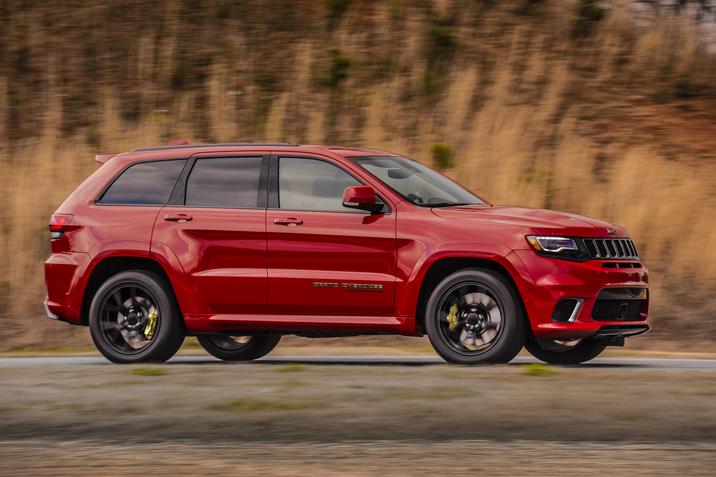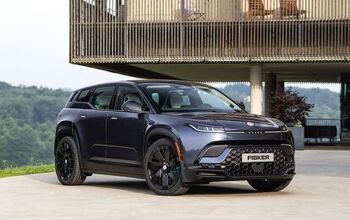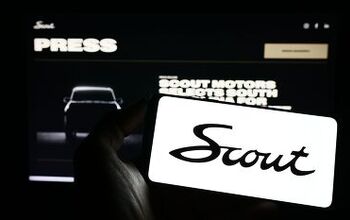Cherokee Nation Leader Suggests Jeep Reconsider SUV Names

The Cherokee Nation has requested that Jeep change the name of some of its vehicles. While you can probably guess which ones are causing offense, it should be stated that the automaker has been utilizing the Cherokee name to evoke a sense of power and natural harmony for over 45 years. But nobody is going to argue that native peoples have a decided advantage in who has first dibs on the title, especially in a time of unprecedented tensions regarding what’s deemed racially insensitive.
Chuck Hoskin, Jr., principal chief of the Cherokee Nation, certainly seems to think Jeep crossed a line. This is actually the first time the group has ever asked Jeep to change a vehicle’s name, though Jeep has also gone on record numerous times to defend its use.
“I’m sure this comes from a place that is well-intended, but it does not honor us by having our name plastered on the side of a car,” Hoskin told Car and Driver in a written statement responding to the tribal request. “The best way to honor us is to learn about our sovereign government, our role in this country, our history, culture, and language and have meaningful dialogue with federally recognized tribes on cultural appropriateness.”
This is part of a larger initiative on behalf of the Cherokee Nation to convince corporations to end their use of native names and mascots. While numerous tribal organizations have opposed such programs by suggesting they are markers of national pride in a people that deserve recognition and respect wherever possible, the dominant narrative among many tribes and social justice activists is that it would be better to simply stop using native terms outside of predominantly native groups.
“I think we’re in a day and age in this country where it’s time for both corporations and team sports to retire the use of Native American names, images and mascots from their products, team jerseys and sports in general,” Hoskin explained.
From Car and Driver:
According to Amanda Cobb-Greetham, a professor at the University of Oklahoma and director of the school’s Native Nations Center, the use of Native imagery in sports and popular culture started around the turn of the 20th century. At that time, there were fewer than 300,000 Native Americans living in the United States. “Because of the prevalence of the ideology that Native peoples would eventually disappear . . . Native Americans became part of the national mythology of the frontier and the west and the settlement of America,” Cobb-Greetham said. “And that’s when suddenly you have Native American mascots and products, cultural kitsch. Car names are a part of that.”
Jeep first used the Cherokee name in a 1974 two-door wagon (one available trim was called Cherokee Chief). It has since built cars called Cherokee continuously, but from 2002 through 2013 the cars were known as the Liberty in the North American market. When Jeep brought the Cherokee name back to its U.S. in 2013, a Cherokee Nation representative told the New York Times, “We have encouraged and applauded schools and universities for dropping offensive mascots,” but that “institutionally, the tribe does not have a stance on this.”
While Hoskin has spent a large part of the year advocating for COVID vaccines and trying to manage the response in regard to native groups, he has likewise taken a much stronger stance on what he views as cultural appropriation ever since Black Lives Matter put a spotlight on racial issues in America over the summer. “We hope the movement away from using tribes’ names and depictions or selling products without our consent, continues. We much prefer a cooperative effort than an adversarial one,” Hoskin said in 2020.
Ironically, the use of native iconography exploded in the early 20th century as a way to preserve and honor what many Americans assumed was a vanishing culture. But the tone of the country has shifted over the last 100 years and many now view those actions as insensitive. Though universal acceptance of the practice never truly existed among the tribal group at any point we’re aware of.
Other tribes have expressed support for the Cherokee Nation’s sovereignty, including those that don’t see a reason for anyone to take offense. Meanwhile, Jeep has reiterated that its vehicle names are carefully chosen to “honor and celebrate Native American people for their nobility, prowess, and pride,” adding that it looked forward to having an open dialogue with Principal Chief Chuck Hoskin, Jr.
Considering how important the Cherokee and Grand Cherokee are for Jeep, we doubt it’s interested in changing their names. Cynically, we’re going to presume the automaker will pay some kind of tribute to the Cherokee Nation (e.g. scholarship programs, commitments to tribal lands) so it can get the “necessary consent.” But that might be for the best since it could be argued that Jeep was profiting from a name that many will argue didn’t belong to it for decades.
[Images: Jeep]

A staunch consumer advocate tracking industry trends and regulation. Before joining TTAC, Matt spent a decade working for marketing and research firms based in NYC. Clients included several of the world’s largest automakers, global tire brands, and aftermarket part suppliers. Dissatisfied with the corporate world and resentful of having to wear suits everyday, he pivoted to writing about cars. Since then, that man has become an ardent supporter of the right-to-repair movement, been interviewed on the auto industry by national radio broadcasts, driven more rental cars than anyone ever should, participated in amateur rallying events, and received the requisite minimum training as sanctioned by the SCCA. Handy with a wrench, Matt grew up surrounded by Detroit auto workers and managed to get a pizza delivery job before he was legally eligible. He later found himself driving box trucks through Manhattan, guaranteeing future sympathy for actual truckers. He continues to conduct research pertaining to the automotive sector as an independent contractor and has since moved back to his native Michigan, closer to where the cars are born. A contrarian, Matt claims to prefer understeer — stating that front and all-wheel drive vehicles cater best to his driving style.
More by Matt Posky
Latest Car Reviews
Read moreLatest Product Reviews
Read moreRecent Comments
- 28-Cars-Later Say it ain't so, so reboot #6* isn't going to change anything?[list=1][*]V4-6-8 and High "Tech" 4100.[/*][*]Front wheel drive sooooo modern.[/*][*]NOrthSTARt.[/*][*]Catera wooooo.[/*][*]ATS all the things.[/*][*]We're *are* your daddy's Tesla. [/*][/list=1]
- MaintenanceCosts Can I have the hybrid powertrains and packaging of the RAV4 Hybrid or Prime with the interior materials, design, and build quality of the Mazda?
- ToolGuy I have 2 podcasts to listen to before commenting, stop rushing my homework.
- ToolGuy Please allow me to listen to the podcast before commenting. (This is the way my mind works, please forgive me.)
- ToolGuy My ancient sedan (19 years lol) matches the turbo Mazda 0-60 (on paper) while delivering better highway fuel economy, so let's just say I don't see a compelling reason to 'upgrade' and by the way HOW HAVE ICE POWERTRAIN ENGINEERS BEEN SPENDING THEIR TIME never mind I think I know. 😉





































Comments
Join the conversation
Possibly the Cherokees have reconsidered Jeep using their name since they are now owned by Stellantis and previously by Fiat both of which they don't want their name associated with. The Jeep name and quality has taken a nose dive in recent years.
If corporations only named their products and teams after white icons or symbols, I have no doubt that these "woke" groups would complain about a lack of diversity in product names and corporate branding. "Activists are fighting racism by demanding that people of color be removed from all media, brands, logos, mascots, and anywhere else they might pop up." (Babylon Bee). Insane.